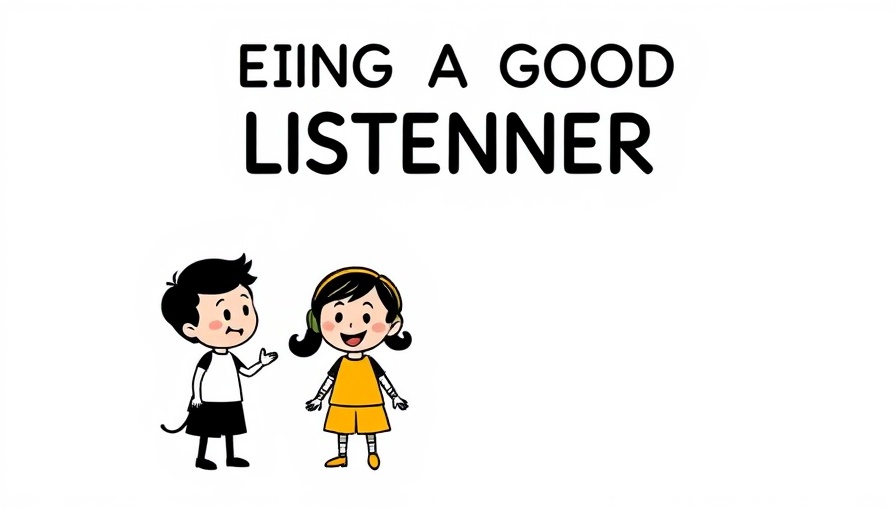
Understanding the Vital Role of Listening in Communication
When we engage in conversation, it's easy to become more concerned with what we will say next rather than truly listening to the other person. This tendency can undermine the depth and quality of our relationships, as communication is much more than just exchanging words. As we explore the four qualities of a good listener, it becomes clear that these attributes not only enhance conversations but also foster deeper connections and understanding.
What’s on Your Mind? The Art of Opening Up
A hallmark of effective listening is asking the simple yet profound question: “What’s on your mind?” In moments of confusion or anxiety, a good listener provides a space for exploration. This gentle encouragement helps uncover the underlying emotions that may be troubling someone. Instead of jumping in with solutions, they let their conversation partner express their thoughts freely, allowing for clarification and resolution over time.
Connecting Dots: Beyond Superficial Conversations
Good listeners excel at looking beyond surface-level anecdotes. They don’t merely acknowledge feelings as nice or terrible; they seek to connect these feelings to past experiences or broader issues at play. This skill helps the speaker broaden their perspective and achieve greater self-awareness. For example, by linking a current frustration to a recurring pattern, a listener not only validates feelings but also paves the way for personal growth.
Sensitivity to Uniqueness: Creating Safe Spaces
One of the most commendable qualities of a good listener is their ability to appreciate individual differences. This sensitivity fosters vulnerability, allowing speakers to express their emotions without fear of judgment. Good listeners recognize that everyone has their unique struggles and often employ small affirmations, such as sounds of sympathy, to create a supportive environment. Such tact allows the speaker to share their thoughts openly, contributing to healthier friendships and relationships.
Disagreement vs. Criticism: Building Trust Through Acceptance
Having differing opinions is a natural part of any relationship, but it can be challenging to navigate. A good listener makes it clear that disagreements do not equate to rejection. They actively create a safe space where one can express divergent views without the threat of losing the relationship. This distinction between disagreement and criticism fosters an atmosphere of mutual respect, where individuals feel comfortable being authentic and true to themselves.
The Emotional and Practical Benefits of Listening
Incorporating the qualities of good listening into our daily interactions can have profound implications. On an emotional level, these skills lead to strengthened bonds and more honest communication. Practically, they enhance conflict resolution and enable collaborative problem-solving. Whether in personal relationships, workplaces, or community interactions, being a good listener can be a transformative practice that enriches all of our connections.
As we reflect on the importance of listening, let’s remember that every conversation is an opportunity for connection. By practicing these four qualities of a good listener, we can enhance the quality of our relationships and create a more understanding and compassionate world.
 Add Row
Add Row  Add
Add 




 Add Row
Add Row  Add
Add 

Write A Comment